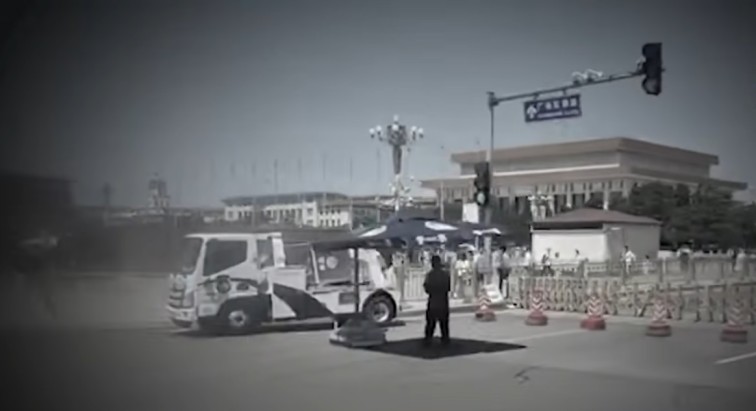Xi Jinping (Free images)
[People News] Recently, overseas media figure Zhou Mingfeng revealed that sources inside the CCP told him Xi Jinping had joined an “Anti-Party Nation-Building” group before the Cultural Revolution. This, he said, was why Xi was later suppressed, denounced, and even imprisoned during that period. Du Wen, former deputy director of the Legal Advisory Office of the Inner Mongolia Autonomous Region Government and now an independent commentator, once made a program titled “Not Loyalty, But Revenge” in which he analysed Xi Jinping’s rise as carrying deep hatred and a drive to destroy the Party and the nation.
In 2018, Radio Free Asia published an article titled “The Current Emperor Xi Jinping’s Youth Experience as an ‘Outsider Vagrant’ and ‘Intercepting Sedans to Petition’”, casting serious doubt on claims that Xi had been imprisoned at the beginning of the Cultural Revolution on charges of being a “current counterrevolutionary.”
That article cited Xi’s biography, which described him as having been persecuted during the early Cultural Revolution—jailed, forced to flee, refused shelter by his own mother Qi Xin (who even sent him back to detention), and publicly denounced with a placard at struggle sessions. It even quoted accounts that Xi’s “crimes were enough to warrant execution 100 times over.”
Zhou Mingfeng explained that during the Cultural Revolution, people targeted in political campaigns were usually confined in “cow sheds” (makeshift detention sites), not labour camps, which were reserved for criminals. Xi was under 15 years old at the time, so Zhou questioned why he would have been imprisoned for 11 months.
Zhou revealed that a highly placed informant told him Xi had participated in the “Anti-Party Nation-Building Group,” formed by second-generation CCP elites. How did this get exposed? Reportedly, a family member of one participant, who was a professor at the Central Party School, discovered his child’s involvement and reported Xi. That professor was very likely Kang Sheng’s wife, Cao Yio.
Xi himself wrote about his early Cultural Revolution experience in a 2000 article published in China’s Sons and Daughters magazine, titled “Interview with Xi Jinping: How I Entered Politics.”
In it, Xi recalled: “After our house was ransacked during the Cultural Revolution, we moved into the Party School. Because I was stubborn and refused to be bullied, I offended the rebels, who blamed me for everything and treated me as their leader. I was dragged out by Kang Sheng’s wife, Cao Yio, as a member of a ‘black gang.’ At that time, I wasn’t even 15 years old. They asked me, ‘How serious do you think your crimes are?’ I said, ‘You tell me, are they enough for execution?’ They replied, ‘Enough to shoot you 100 times.’”
What crimes could possibly justify “execution 100 times”? Based on Zhou’s revelations, it may have been Xi’s participation in the “Anti-Party Nation-Building Group.”
Zhou also mentioned a “Lü” figure, very likely Lü Yulan, who became deputy Party secretary of Zhengding County in 1981. Xi Jinping was sent to Zhengding in 1982 and received support and care.
Lü Yulan’s husband, Jiang Shan, was from Jiangsu and gave an interview to Xinhua in 2018, praising Xi as “practical, earnest, and sincere.” Zhou speculated that Jiang Shan may have been pressured by Jiangsu state security to leak information, and since Lü’s husband was from Jiangsu, the family may have been under surveillance—possibly explaining how knowledge of Xi’s secret past emerged.
Commentator Du Wen analysed that Xi’s family suffered severe persecution during the Cultural Revolution: his half-sister committed suicide, he himself was jailed before age 15, and the entire Xi clan endured 15 years of repression. Du concluded that Xi harbours deep hatred toward the Communist Party.
The persecution of the Xi family stemmed from a novel. According to Epoch Times in “CCP’s Crimes No. 196: The ‘Liu Zhidan’ Anti-Party Novel Case”, in 1962, conspirator Kang Sheng branded the unpublished novel Liu Zhidan as “anti-Party,” claiming it was an attempt to rehabilitate Gao Gang. Xi’s father, Xi Zhongxun, had overseen the novel’s creation, and his positive portrayal there stoked Kang Sheng’s envy. Kang privately told Mao Zedong: “Using a novel to oppose the Party is a great invention.” Mao later endorsed this, and Kang used it as a weapon to bring down Xi Zhongxun.
Because Cao Yio (Kang Sheng’s wife) and Qi Xin (Xi’s mother) both taught at the Central Party School, Xi’s family—who had temporarily moved there—became easy targets for persecution, consistent with Zhou’s account that a Party School professor’s report led to Xi’s denunciation.
Recently, more negative news has emerged: Jiang Wanzheng revealed that Xi’s ally Ma Xingrui’s brother and personal secretary were detained for investigation, while commentator Cai Shenkun claimed Xi’s former secretary Zhong Shaojun and his whole family were also being probed.
Now, amid these setbacks, new allegations surface that Xi once engaged in anti-Party activities. Is this part of an organised campaign by anti-Xi forces to spread damaging information?
Since the 1993 military parade, the CCP has grown increasingly bizarre—even surreal. If Xi himself once opposed the Party, perhaps the question now is not “Who is a spy?” but rather “Who is still truly a Communist?”











News magazine bootstrap themes!
I like this themes, fast loading and look profesional
Thank you Carlos!
You're welcome!
Please support me with give positive rating!
Yes Sure!